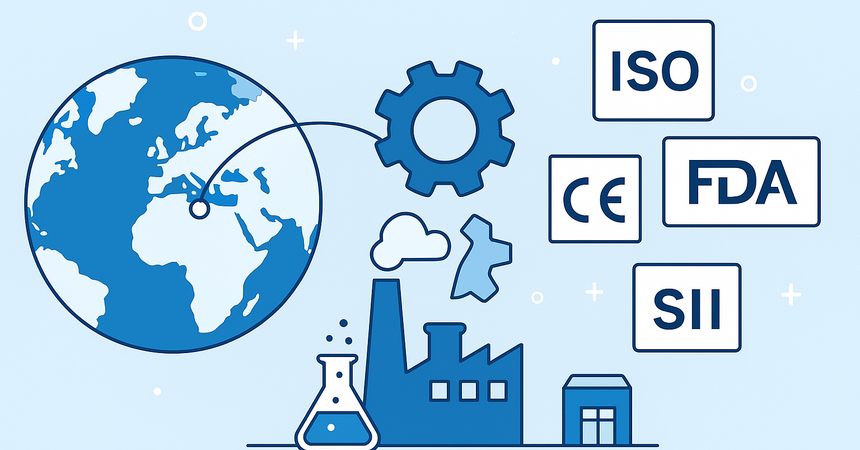Israel is gradually adapting its certification and standards system to international requirements. This process aims to increase transparency, simplify procedures for businesses, and ensure equal market access for foreign manufacturers.
The unification of standards reduces duplicate testing and speeds up certification, making Israel an attractive destination for imports from Europe, the U.S., and other regions.
Why Israel is Transitioning to International Standards
The main reasons behind Israel’s shift to international standards include:- reducing administrative burdens for importers and manufacturers;
- recognizing tests and protocols conducted according to international methods (ISO, IEC, CE, FDA);
- simplifying compliance with ministry and government authority requirements;
- integrating with global markets, which fosters innovation and investment.
Which International Standards Are Recognized
Israel actively recognizes the following categories of standards:- ISO/IEC – for quality management systems, electrical, and electronic products;
- CE – for electrical equipment, toys, and building materials;
- FDA and USP – for medical devices and dietary supplements;
- GMP and HACCP – for food and pharmaceutical products;
- IEC 60601, IEC 60950, etc. – for electrical and medical devices.
How Unification Impacts Imports
- importers reduce certification costs as certain tests become mutually recognized;
- the permit and certification process becomes faster;
- predictability improves — companies know in advance which documents and protocols are required;
- modern technology and innovative products are encouraged in the Israeli market;
- interaction with accredited laboratories and certification bodies becomes simpler.
Practical Tips for Foreign Manufacturers
- verify whether your international protocols are recognized in Israel;
- use accredited laboratories in the country of product origin;
- clarify SII and relevant ministry requirements for your product category in advance;
- prepare a full documentation package with translations into English or Hebrew;
- if necessary, combine international protocols with local testing to speed up certification.
Opportunities for Foreign Companies
The unification of international standards makes Israel’s market more accessible for foreign manufacturers:- shorter time-to-market for products;
- reduced costs for repeat testing;
- increased consumer trust in product quality and safety;
- easier cooperation with government agencies and certification centers.
